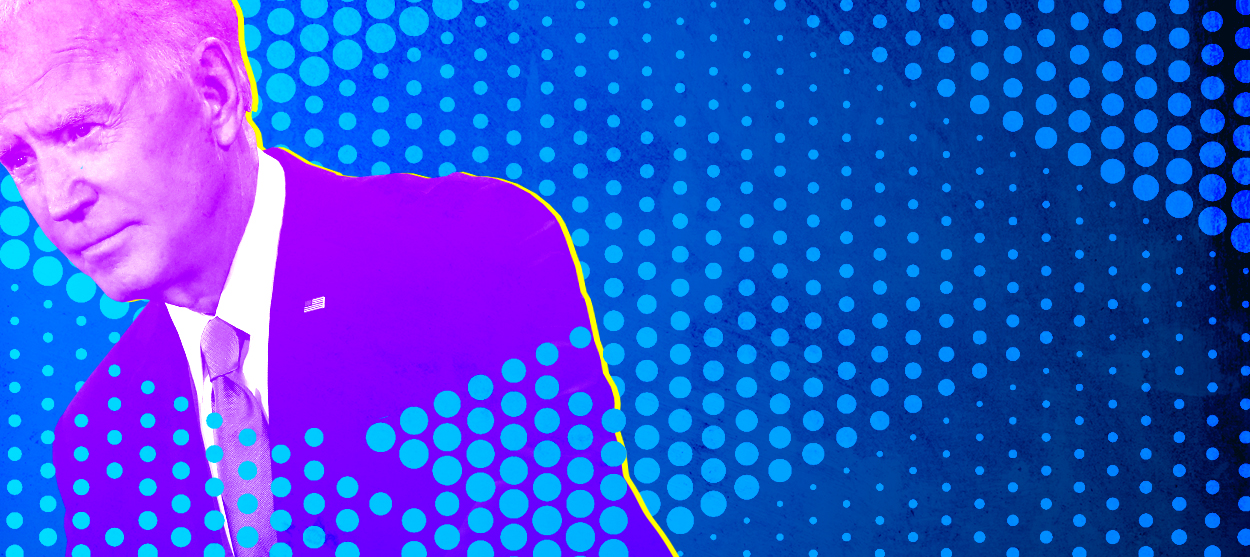Has Biden seen the political advantage of moving left?
What his final debate performance suggests about his prospective presidency


A free daily email with the biggest news stories of the day – and the best features from TheWeek.com
You are now subscribed
Your newsletter sign-up was successful
Joe Biden has arguably the most conservative record of any Democratic nominee for president since Bill Clinton. However, the party's internal dialectic has moved considerably to the left from where it was even five years ago on most questions, following the opinion of both the public and experts, as well as actual conditions on the ground.
Should Biden win the election in less than two weeks, the success of his presidency will depend in large part on whether he can harness the manifest political advantages available from following this trend. There were some mixed signals on this during the final presidential debate on Thursday — encouraging on the economy and climate change, but less so on health care.
Let me start with the economy, the policy area where leftist ideas are most obviously beneficial. In response to questions about what should be done about the coronavirus pandemic, Biden correctly said that what is needed is a big rescue package for both individuals, struggling businesses, and state and local governments. "For example, schools. Schools, they need a lot of money to be open," he pointed out.
The Week
Escape your echo chamber. Get the facts behind the news, plus analysis from multiple perspectives.

Sign up for The Week's Free Newsletters
From our morning news briefing to a weekly Good News Newsletter, get the best of The Week delivered directly to your inbox.
From our morning news briefing to a weekly Good News Newsletter, get the best of The Week delivered directly to your inbox.
As he added, it may be necessary to reinstate partial lockdowns this winter if infections get seriously out of control. But the federal government has the power to mitigate the economic damage of those measures — just keep money flowing to individuals, businesses, and local governments until a vaccine has been developed and deployed. We may not be able to go about our normal lives, but at least everyone can keep their heads above water money-wise. And as I have argued previously, it would be both smart politics and policy to heavily overshoot any post-coronavirus stimulus package, because that will launch America out of the depression sandpit and keep employment and incomes high, and thus prevent a political backlash.
One major indicator of how the national mood has changed was the total absence of discussion about the national debt, which got obsessive attention in 2000, 2004, 2008, 2012, and 2016. Even centrists will grant a potential Biden administration wide latitude to spend so long as the crisis lasts, and perhaps longer. The last centrist austerity freakout, after the financial crisis, was such a disaster in every way that it may be harder to muster the energy for another one now.
Biden's rhetoric was also fairly promising on climate change. He once again insisted that, contrary to Trump's lies, he does not propose to ban fracking entirely, though this would be good policy. However, Biden did say that America should "transition from the oil industry … it has to be replaced by renewable energy" — which is one of those policies that political reporters tend to assume is unpopular but actually polls very well. Moreover, Biden's proposed $2 trillion climate bill is very popular as well, with 66 percent support.
However, Biden was much less promising on health care. For the second time he bungled the details of his own plan — implying that his public option was only for people who are eligible for Medicaid, when his own website says it should be available for anyone. This is a mystifying mistake, given that a public option polls at 67 percent approval, and the plain fact that the private insurance system has been devouring itself for decades.
A free daily email with the biggest news stories of the day – and the best features from TheWeek.com
For any halfway savvy politician who believes what Biden says he does, this should be a simple move — just talk up the public option during the campaign, and when in power, make it substantially better and cheaper than the average private plan. Then watch everyone get scooped onto it over the next few years, and use the resulting leverage to stop medical providers from ripping off sick people to get costs down. But either from inattention, cynicism, or timidity, Biden isn't signaling that move. Perhaps he is in the pocket of Big Medical, or perhaps he just isn't particularly well versed in the policy details, and might be pushed by House progressives.
I certainly can't predict the future. But I am quite certain that if Biden wins the presidency (and Democrats hold the House and take the Senate), the balance of political advantage will lie in governing on behalf of the many rather than the few, even if that upsets some vested interests. Biden has long been a politician who goes with the prevailing currents rather than striking out on his own. His presidency may depend on whether he can still sense where those currents are heading.
Ryan Cooper is a national correspondent at TheWeek.com. His work has appeared in the Washington Monthly, The New Republic, and the Washington Post.
